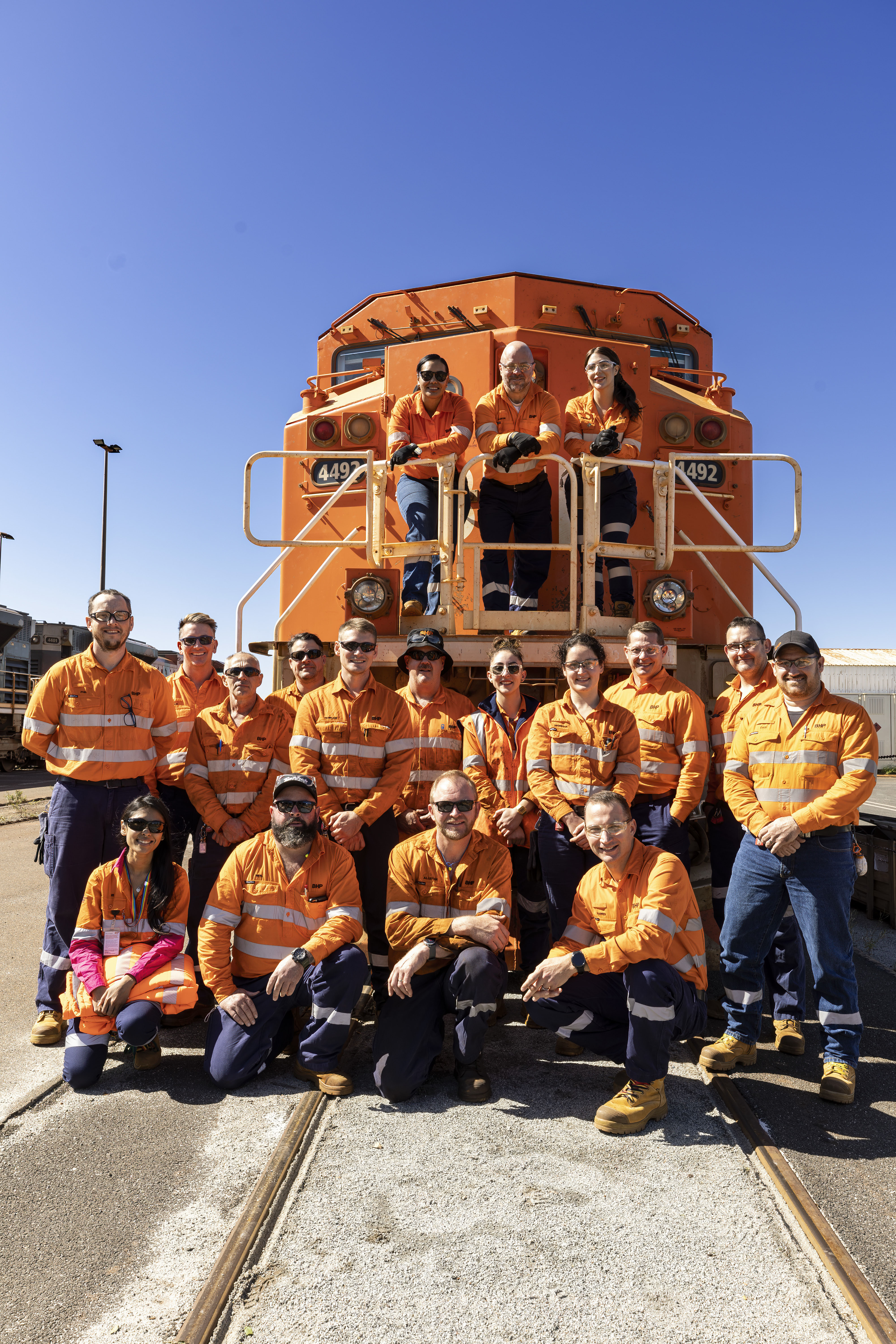14 June 2022
Sixty new train drivers are poised to graduate from BHP’s Pilbara Rail Academy Traineeship Program, created last year to meet the growing skills shortage in Western Australia.
BHP is investing $20 million (AUD) in the academy program, which aims to employ and train 200 new train drivers over three years. BHP welcomed the first recruits – today’s graduates – into the academy in August last year.
BHP WA Iron Ore Asset President Brandon Craig said: “We are excited to see the first round of recruits coming through BHP’s Pilbara Rail Academy and joining our high calibre rail team in Western Australia.
“Through our $20 million investment in the academy, we hope to ease the squeeze of rail driver availability in WA and create new pathways for people to join our team and pursue a rewarding career in mining.
“Through the academy, we can make our business and the mining sector more resilient, create training and job opportunities in regional WA, and continue to deliver value to communities and the economy.”
More than 70 per cent of the 60 trainee drivers are women and about 20 per cent are indigenous, as BHP works to increase diversity and strengthen the capability of its workforce.
The academy recruits have a range of life skills and experiences, including former Uber drivers, ex-military personnel and mums looking for a career change after raising children.
After undergoing a 10-month intensive program at BHP’s Port Hedland and Newman operations, the graduates will receive nationally recognised qualifications in a Certificate IV Train Driving.
They will join BHP’s experienced team of drivers responsible for operating the company’s WA iron ore train fleet of more than 180 locomotives, which deliver ore across more than 1000 kilometres of track from its Pilbara mines to Port Hedland for export.
A fully laden BHP WA iron ore train typically comprises four diesel-electric locomotives pulling approximately 270 cars carrying 40,000 tons of iron ore and can be up to two kilometres long.

Get the latest BHP news alerts, straight to your inbox
Get BHP news first. Stay in touch with our latest updates, investor news and media releases.


